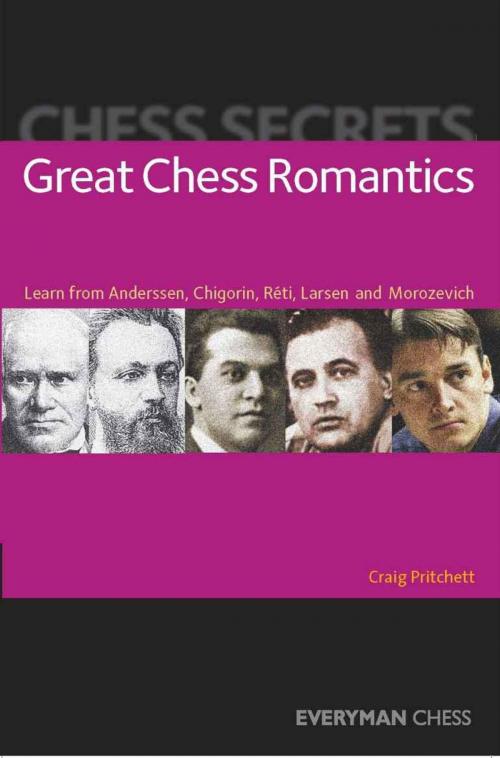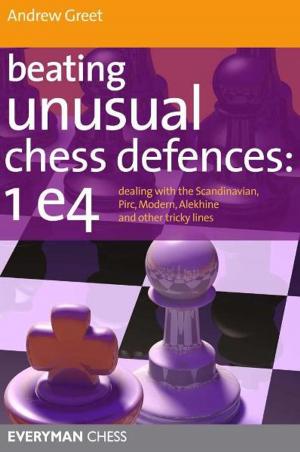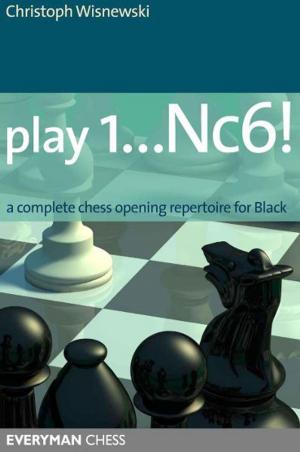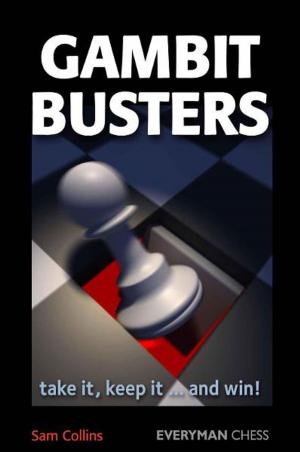Chess Secrets: Great Chess Romantics
Learn from Anderssen, Chigorin, Réti, Larsen and Morozevich
Nonfiction, Entertainment, Games, Chess, Board games| Author: | Craig Pritchett | ISBN: | 9781781941744 |
| Publisher: | Gloucester Publishers | Publication: | November 26, 2013 |
| Imprint: | Everyman Chess | Language: | English |
| Author: | Craig Pritchett |
| ISBN: | 9781781941744 |
| Publisher: | Gloucester Publishers |
| Publication: | November 26, 2013 |
| Imprint: | Everyman Chess |
| Language: | English |
Chess Secrets is a series of books which uncover the mysteries of the most important aspects of chess, such as strategy, attack, defence, opening play, endgames, off-board preparation and mental attitude. In each book the author studies a number of great players who have excelled in such aspects of the game, greatly influenced their peers and inspired all of us.
In Great Chess Romantics, Craig Pritchett selects five players, whose chess artistry expresses a deeply personal commitment to the discovery and revelation of great new truths and beauty on the chessboard. Anderssen defined romanticisms inherently dramatic and correct combinational core. Chigorin championed this essence in splendid opposition to an emerging new classical consensus. Réti revealed the extraordinary power of new flank openings. Larsen confounded the overly sober, scientific Soviet “school” at innumerable turns. In the computer age, Morozevich constantly discovers new depths to chess, while simply oozing exquisite strokes in his best games.
- An instructive guide to the romantic spirit in chess
- Learn from the greatest minds of the game
- Deepen your understanding of great players styles
Chess Secrets is a series of books which uncover the mysteries of the most important aspects of chess, such as strategy, attack, defence, opening play, endgames, off-board preparation and mental attitude. In each book the author studies a number of great players who have excelled in such aspects of the game, greatly influenced their peers and inspired all of us.
In Great Chess Romantics, Craig Pritchett selects five players, whose chess artistry expresses a deeply personal commitment to the discovery and revelation of great new truths and beauty on the chessboard. Anderssen defined romanticisms inherently dramatic and correct combinational core. Chigorin championed this essence in splendid opposition to an emerging new classical consensus. Réti revealed the extraordinary power of new flank openings. Larsen confounded the overly sober, scientific Soviet “school” at innumerable turns. In the computer age, Morozevich constantly discovers new depths to chess, while simply oozing exquisite strokes in his best games.
- An instructive guide to the romantic spirit in chess
- Learn from the greatest minds of the game
- Deepen your understanding of great players styles















